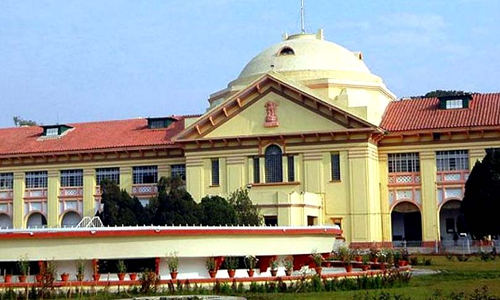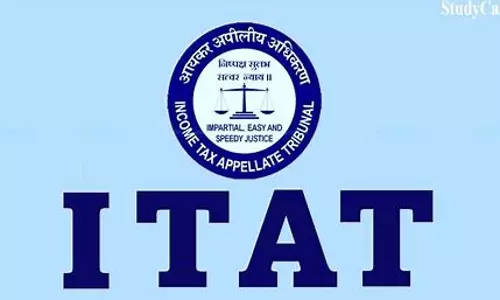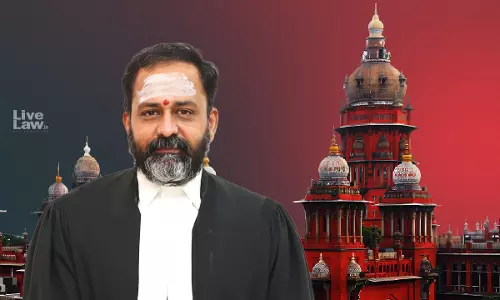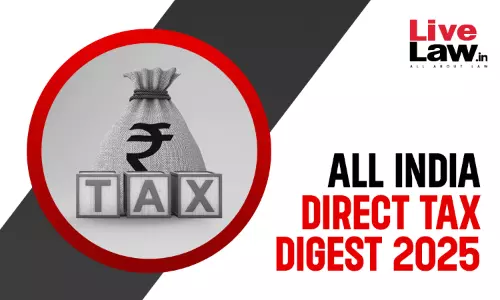Tax
CGST |Tripura High Court Reads Down Section 16(2)(c), Shields Bona Fide Buyers From ITC Denial
The Tripura High Court has read down Section 16(2)(c) of the Central Goods and Services Tax Act, 2017, holding that while Input Tax Credit can be claimed only if the tax charged by the supplier is paid to the Government, the provision cannot be applied to deny credit to a bona fide purchaser for the supplier's default.A Division Bench of Chief Justice M S Ramachandra Rao and Justice S...
Income Declared Under VDIS Can Still Be Scrutinised If Higher Income Is Found: Madhya Pradesh High Court
The High Court of Madhya Pradesh at Jabalpur recently held that declaring income under the Voluntary Disclosure of Income Scheme, 1997 does not stop the income tax department from checking whether the correct income was disclosed, even though the scheme protects the assessee from being questioned about the source of that income. A Division Bench of Justice Vivek Rusia and Justice Pradeep...
Reassessment Notice To Non-Existent Firm Invalid: Bombay High Court Reiterates
The Bombay High Court has reiterated that proceedings initiated against a non-existent entity are invalid in law. A Division Bench of Justices B.P. Colabawalla and Amit S. Jamsandekar set aside a reassessment notice and a consequential assessment order issued under the Income Tax Act against a partnership firm that had merged into a private limited company years earlier. The case concerned...
Bihar Excise Act | Patna High Court Reduces Penalty From 50% To 30% For Release Of Rental Car Seized With Liquor
The Patna High Court has slashed a 50 percent penalty imposed for releasing a rental car seized with nearly 318 litres of liquor. It ordered that the vehicle be released on payment of 30 percent of its insured value and struck down an additional 3 per cent charge as illegal. A Division Bench of Justice Rajeev Ranjan Prasad and Justice Sourendra Pandey noted that the vehicle owner was not...
Amendments To Income Tax Appellate Tribunal Rules Mandate Digital Signatures For Filing Appeals
The Ministry of Law and Justice has recently notified changes to the Income-tax (Appellate Tribunal) Rules, 1963, making the use of digital signatures compulsory for filing appeals before the Income Tax Appellate Tribunal (ITAT). The changes have been brought in through the Income-tax (Appellate Tribunal) Amendment Rules, 2025. Under the amended rules, appeals must now be filed...
ITAT Mumbai Sets Aside ₹2.28-Crore Capital Gains Tax on Housing Society For Developer Payments To Members
The Mumbai Bench of the Income Tax Appellate Tribunal (ITAT) has quashed a Rs 2.28 crore capital gains tax addition against Colombia Co-operative Housing Society, holding that redevelopment compensation paid directly to individual members cannot be taxed as the society's income.The ITAT held that amount paid by a developer directly to individual members of a co-operative housing society...
HSNS Cess Rules Notified: Pan Masala Makers to Pay Levy Based on Installed Machines From Feb 1
The Ministry of Finance has notified the Health Security & National Security (HSNS) Cess Rules, 2026, on January 1, setting out the procedure for levying a new cess on machines installed and processes undertaken for the manufacture of pan masala. The cess will come into force on February 1, 2026, and the collections will be used to fund national security and public health...
LiveLawBiz: Business Law Daily Round-Up: January 05, 2026
TAX Mandatory Pre-Deposit For Customs Appeal Cannot Be Waived For Financially Sound Appellant: Karnataka High CourtMere Apprehension of Business Loss In State Does Not Confer Writ Court Territorial Jurisdiction: Calcutta High CourtCustoms Cannot Withhold Part Of Consignment After Accepting Full Bond, Guarantee : CESTAT KolkataHotels Can Now File Specified Premises Opt-In Online On GST...
Indirect Tax Weekly Round-Up: December 29, 2025 - January 04, 2026
HIGH COURTSAndhra Pradesh HCAPVAT | Value Added Tax Not Leviable On Offshore Sales Beyond Territorial Waters: Andhra Pradesh High CourtCase Title: M/s Helix Energy Solutions Group Inc. v. The Commercial Tax OfficerCase Number: WRIT PETITION Nos.6319 & 6321 & 5089 of 2010The Andhra Pradesh High Court held that Value Added Tax (VAT) under the Andhra Pradesh Value Added Tax Act (AP...
Direct Tax Weekly Round-Up: December 29, 2025 - January 04, 2026
HIGH COURTSAndhra Pradesh HCIncome Tax | Delay in Filing Form 10-B Due To COVID Cannot Deny S.11 Exemption: Andhra Pradesh High CourtCase Title: M/s Amnos Evangelical v. The Centralized Processing Centre, BengaluruCase Number: WRIT PETITION NO: 8798 OF 2025The Andhra Pradesh High Court held that the exemption under Section 11 of the Income Tax Act cannot be denied merely on account of delay...
Madras High Court Sets Aside GST Demand For Not Considering CBIC Circulars Cited By Taxpayer
The Madras High Court has set aside a GST demand on a corporate guarantee after finding that the tax department failed to consider CBIC circulars relied upon by the taxpayer while raising the assessment.Allowing the writ petition, Justice G R Swaminathan held that an assessment order cannot survive if the tax department fails to consider the defence raised by the taxpayer. The court...
All India Direct Tax Digest 2025
SUPREME COURTMotor Accident Claims - Tax Returns Can Be Accepted To Determine Income Only If They Are Appropriately Produced : Supreme CourtCase name: New India Assurance Co. Ltd. V. Sonigra Juhi Uttamchand.Case no.: SLP (C) No. 30491 of 2018The Supreme Court, recently (on January 02), while deciding a motor accident compensation claim case, observed that monthly income could be fixed...













